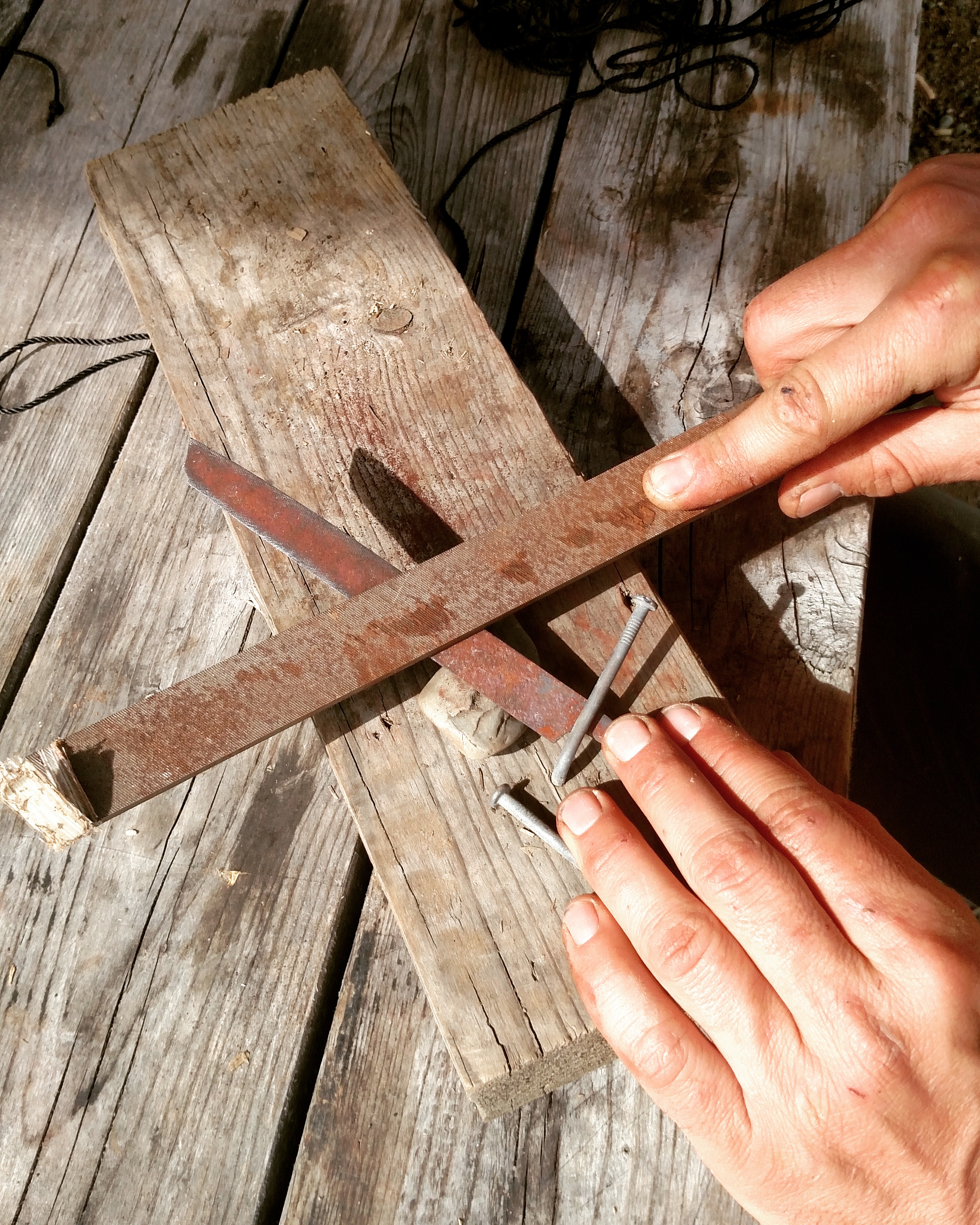Big crafting projects are important on our courses at Jack Mountain and School Of The Forest. Not only do students get to make a completely functional piece of kit that they’ll actively use during the course, but they start to understand something about what it means to live an outdoor life.
On a recent semester, I was approached by a frustrated student about the time it was taking to finish filing excess material off of a mocotaugan (or “crooked knife”) blank. She felt that she was doing something wrong because she had been at it for a few days and wasn’t finished yet.
Whether it’s making a canoe paddle or tillering a bow, a lot of crafting projects take time and attention to detail, and can sometimes feel monotonous. This is a reality of a lot of projects we do, and personally, I think that learning the craft itself is only half as valuable as learning the meta-skills of patience and mental endurance.
The modern world habituates us to instant gratification. In a setting like the north maine woods, with very little infrastructure, that isn’t a reality anymore. It can be frustrating at first, but the (sometimes hard to swallow) truth of a life outdoors is that most tasks require us to be “slow-burning” in our approach to most things rather than relying on the “flash in the pan” bursts of motivation that are the norm in the modern world.
If students take something away from our courses bigger than the technical skills we teach, I hope the “slow burn” approach I’m talking about is it. No matter what our students end up pursuing, having the mental grit to keep working away at something is a hard thing to learn, but once you have it, it sets you apart in all apsects of life.








